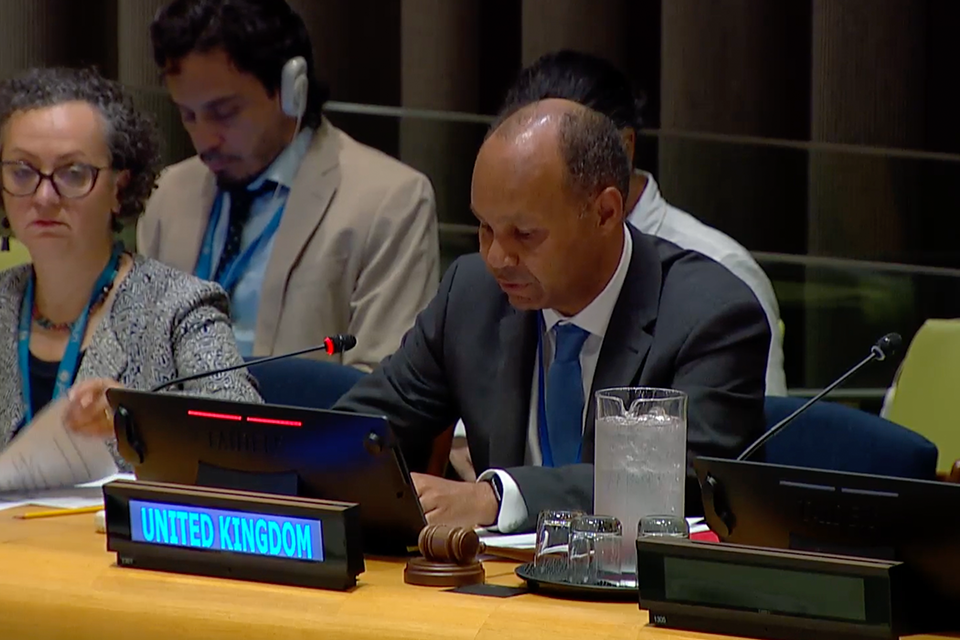Myanmar’s children are bearing the brunt of this crisis: UK statement by Ambassador James Kariuki at the UK-hosted UN Arria meeting on youth and children in Myanmar.
Statement by Ambassador James Kariuki at the UK-hosted UN Arria meeting on youth and children in Myanmar.

Thank you, excellencies, colleagues for joining today’s Arria-formula meeting on the situation in Myanmar.
Last May, we held an Arria focused on Myanmar’s humanitarian crisis. In a span of 12 months, the number of people in need of humanitarian assistance has risen from 17.6 million to 18.6 million. The number of internally displaced persons is now 3 million, in comparison to 1.8 million in 2023.
Myanmar’s youth and children are bearing the brunt of this crisis, triggered by the military coup and their repression of the civilian population. More than half are out of school, routine vaccinations are being disrupted, and with food insecurity on the rise, there is a risk that many will suffer from childhood malnutrition.
So what can we do to shift the trajectory and protect Myanmar’s children and future generations?
First, the international community needs to pay greater attention to the worsening levels of food insecurity. More than 13 million people in Myanmar are projected to fall into acute food insecurity this year. Babies will not receive the necessary nutrients to grow up healthy while children may be pushed to join armed groups or forced to be married to reduce the burden on their families. The United Kingdom has helped support 1.8 million people with nutrition and livelihood support in 2023. We call on others to urgently ramp up their response.
Second, there needs to be greater access to education and health services, including through localised delivery partners to ensure we reach all those in need. Through local providers, the UK has helped support half a million women and children to access maternal, newborn, and child health services. And last year, we helped facilitate education to over 200,000 children, of whom more than half were girls.
And finally, it is deeply concerning that nearly 150 children are estimated to have been killed in Myanmar in the first five months of 2024. We are also following reports of forced recruitment, increased violence, and displacement in Rakhine State, affecting all civilians, including Rohingya, Rakhine, and other ethnic communities. Unified messaging underlining the critical need for all parties to protect civilians, including children, is urgently needed. As per ASEAN’s latest review of the five-point consensus, we call on the Myanmar Armed Forces in particular, to stop targeted attacks on civilians and civilian infrastructure, including schools and healthcare facilities. And we reiterate the Security Council’s demand for an immediate end to all forms of violence as set out in Resolution 2669.
Now, today, we will hear perspectives from Myanmar’s youth and children, as well as from UNICEF Emergency Operations Director, Lucia Elmi. I would now like to turn my colleagues’ attention to the screen to hear the invaluable voices of Myanmar’s future generation.